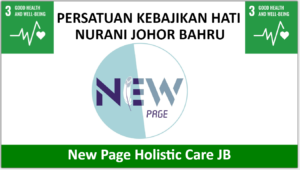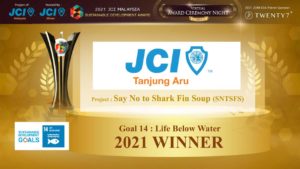
The infectious diseases carried by mosquito vectors have been an increasing public health concern in recent decades. Today, resistance management in the context of integrated vector management has evolved as the favoured approach to prevent, delay or reduce the impact of insecticide resistance. To fully develop this strategy, a thorough knowledge of the mechanism of insecticide resistance is essential.
PROJECT RESULT
A total of 31 research articles were published in world renowned academic journals. Those research output were documented and disseminated to more readers in national and international arena. A total of 40 research papers were presented in national and international conferences / seminars. Our presentation gained attention from local and international researchers, and leaded to constructive discussion on how to improve the current research thru valuable ideas from experts. A total of 9 interviews were conducted with local press and radio broadcast to promote awareness on dengue. Education and legislation enforcement are also crucial in order to intensify knowledge, create awareness and steer behavioural change of general public in combating the dispersal of dengue vectors. The dengue KAP study among local communities revealed that most respondents were moderately knowledgeable in matters pertaining to dengue and Aedes. Media is the best tool which can create awareness against dengue and have a potential to influence the communities behavior regarding dengue prevention. Since 2017, I had regularly promoted the information of dengue and its vectors via mainstream media (newspapers and radio) to educate the public. Thru these interviews, knowledge on dengue and its vector are able to disseminate widely in order to create awareness among
communities in the country.
WHAT IMPACT HAS THIS PROJECT CREATED IN THE COMMUNITY / NATION?
The role of public health researchers is always to improve the health and well-being of all of our fellow citizens. When we publish the research outputs from this project, we spread news of our successes and promote the adoption of improved health programs and we contribute to improving the health of our community. It would be a waste if the data obtained is not communicated to responsible parties. The resistance data from this project was channelled to health authorities via publication in various journals, so that they can execute better vector control strategies in the country.
HOW HAS THIS PROJECT HELP TO ADVANCE THE CHOSEN SDG?
This project is directly helping to advance the chosen Sustainable Development Goal 3: Good Health and Well-Being (Ensure healthy lives and promote well-being for all at all ages). Personal protection, source reduction (destroy mosquito breeding Isites) and public health education are parts of the community awareness. In the past few years, our team has conducted several questionnaire surveys in major cities / townships across the country. We had investigated the knowledge, attitude and practice of community against Aedes and the dengue awareness level of our tcommunity. So we can provide appropriate information on Aedes and its’ control measures to the public via newspapers and radio.
THE TAGLINE FOR UNITED NATIONS SUSTAINABLE DEVELOPMENT GOALS (UNSDGS) IS “LEAVING NO ONE BEHIND.” EXPLAIN HOW YOUR PROJECT HELPS TO REALIZE THE COMMITMENT OF UNSDGS FOR THE FUTURE.
Our project is in line with the tagline for United Nations Sustainable Development Goals (UNSDGs):- “Leaving No One Behind”. Our project was designed to improve the health and well-being of all of our fellow citizens. At the beginning of this project, we conducted the vector surveillance in 1,830 houses in various types of residential areas regardless of their socioeconomic aspects and geographical environments, so that our research is reliable and represent the overall conditions of Malaysia. The research outputs were contributing to all levels of communities, regardless of gender, age, education levels etc. The questionnaire for dengue awareness in this project also involved huge number of public (1,986 individual) covering all levels of ages, races, education and incomes. For knowledge transfer, we translate research outputs and information generated from questionnaire surveys to formats and languages that are easily understood by the public. These knowledge and information were disseminated via media, in order to have wider coverage for huge amount of audiences, so that no one will be left behind.

Leaving NO One Behind


